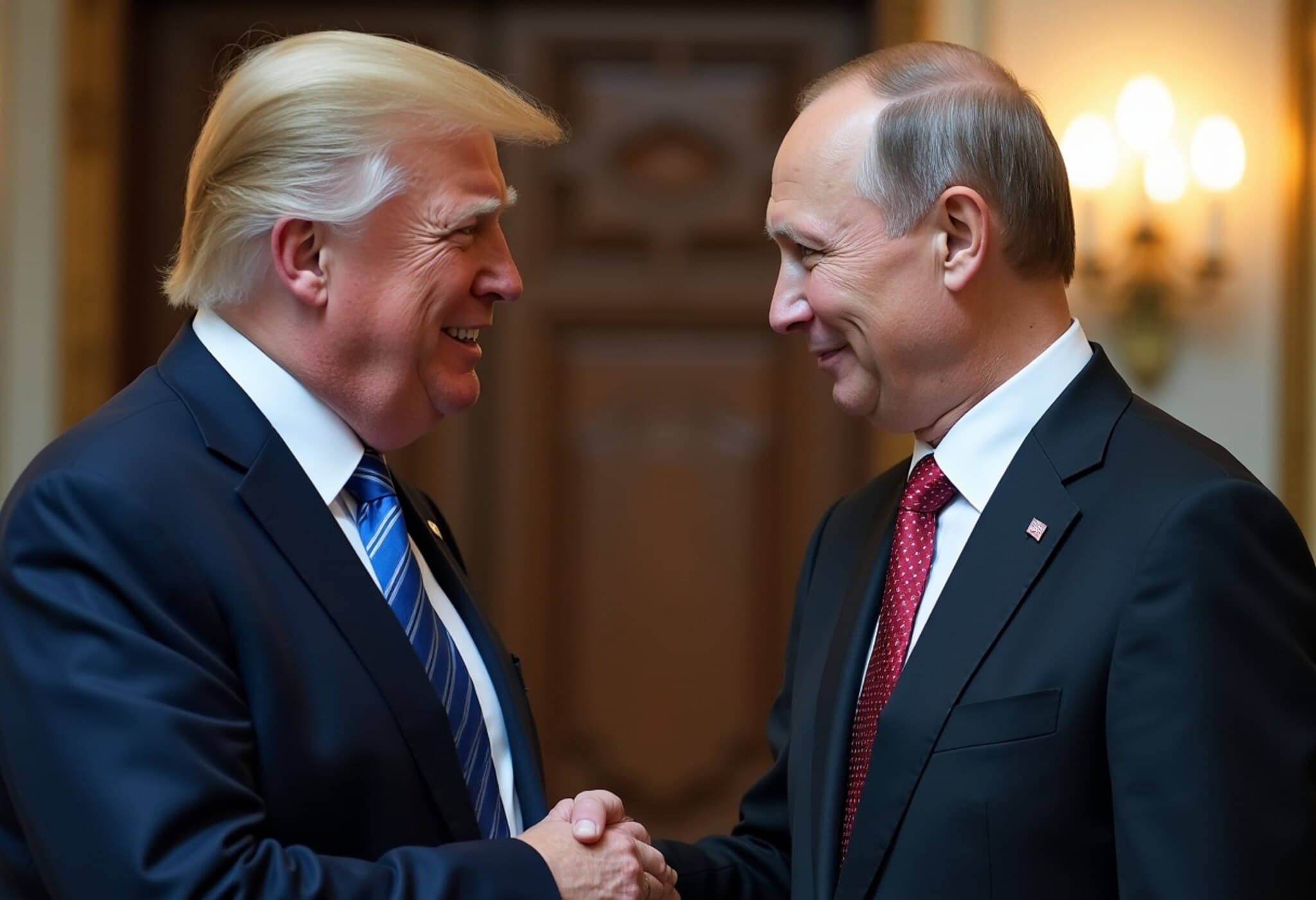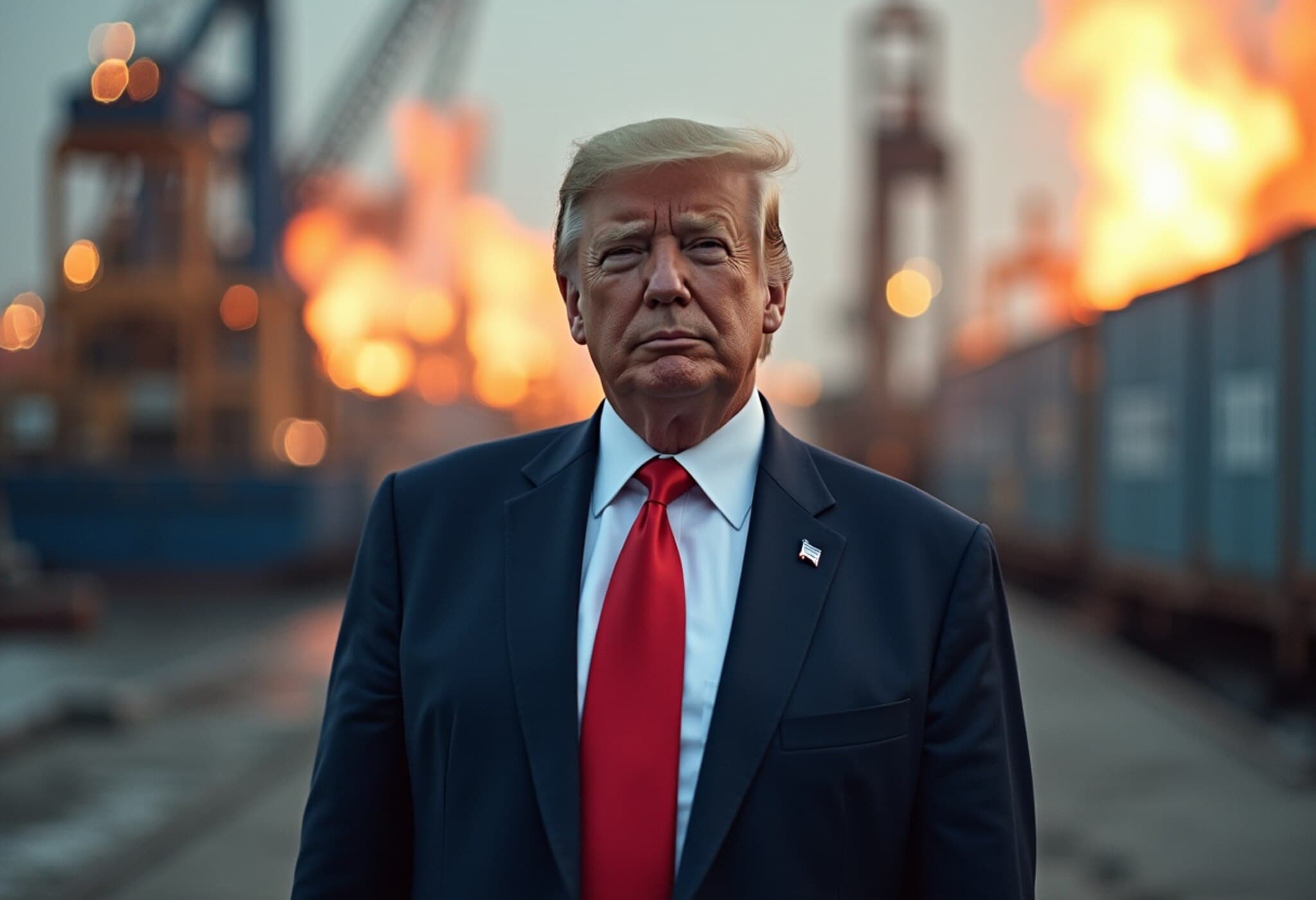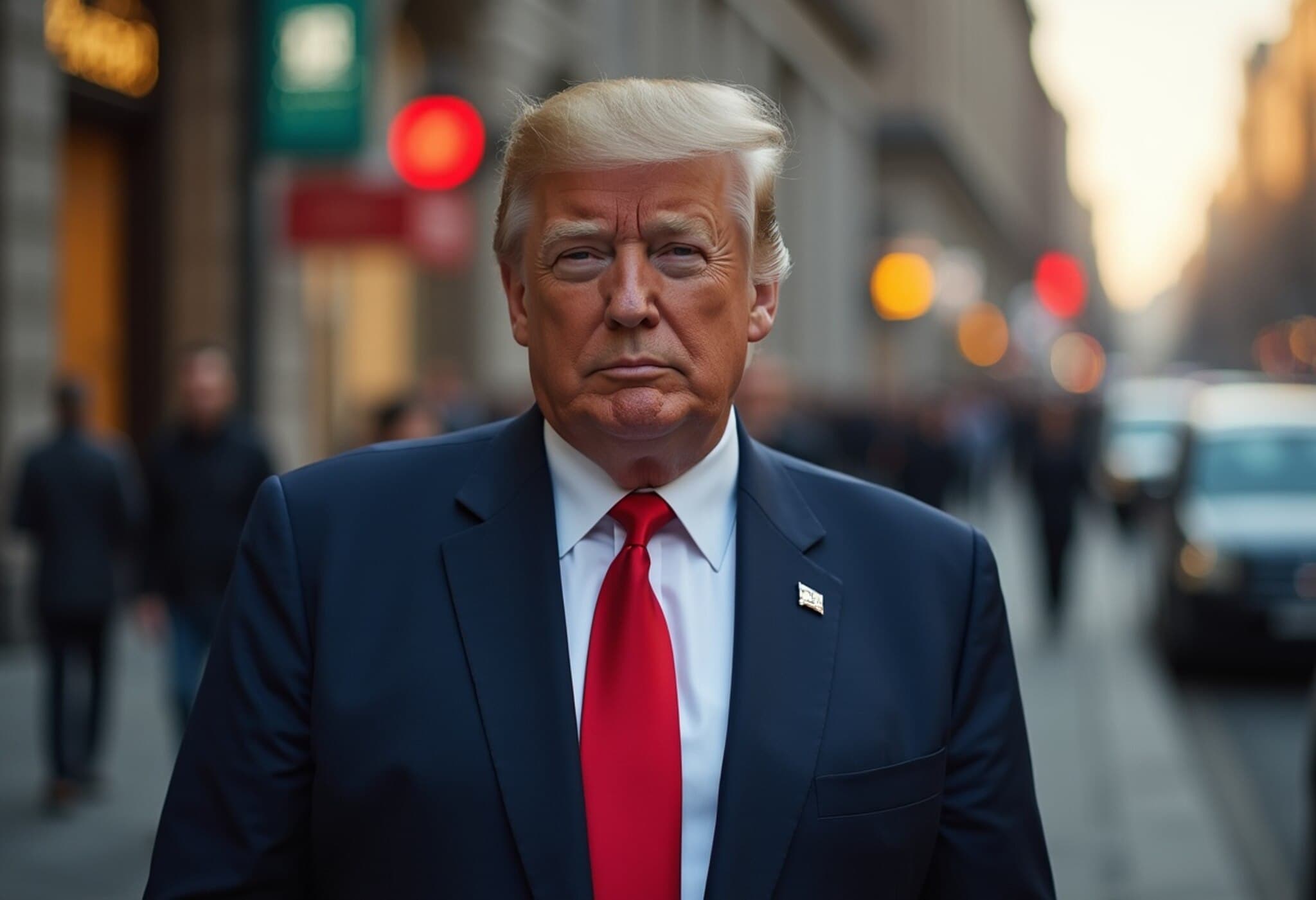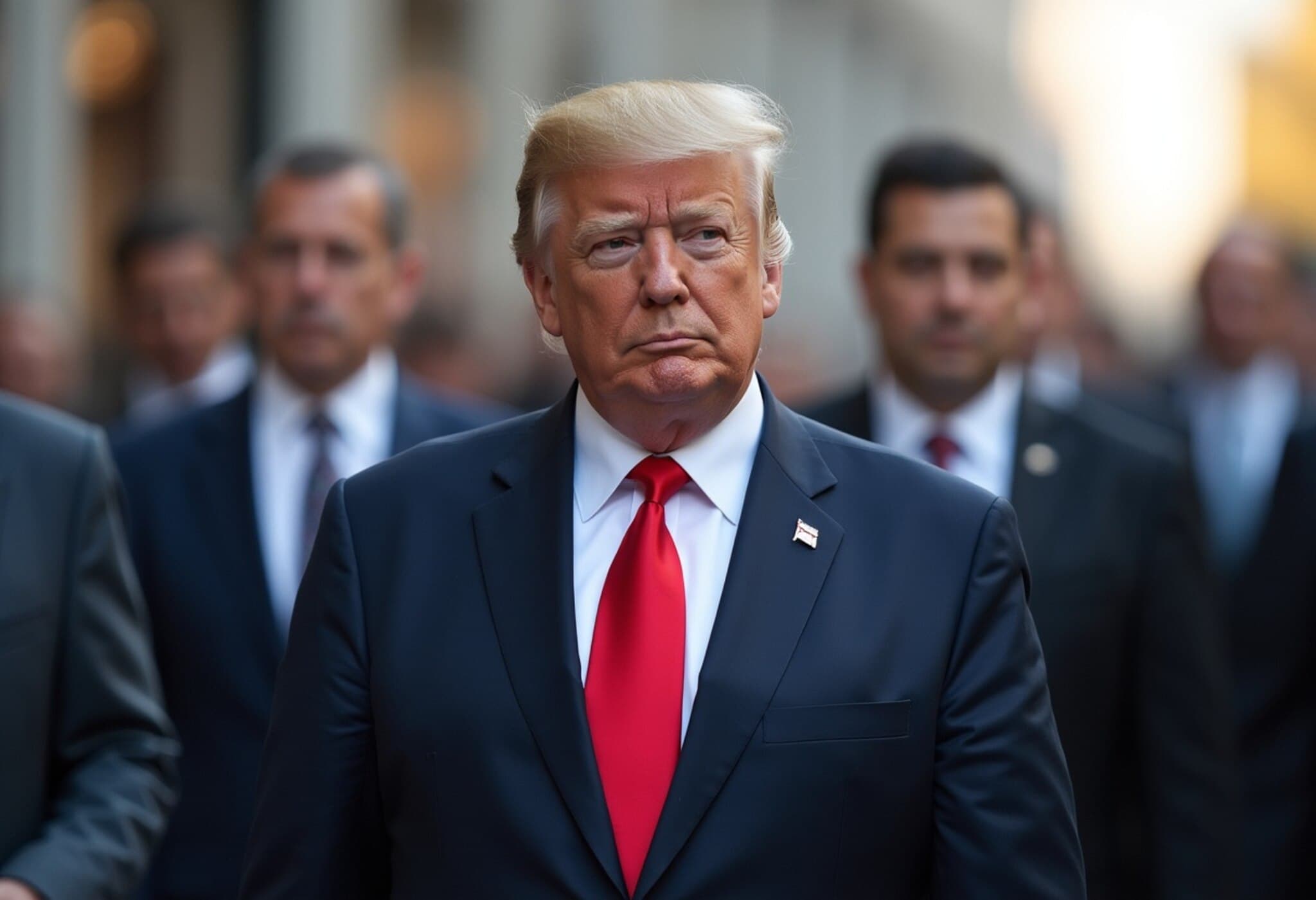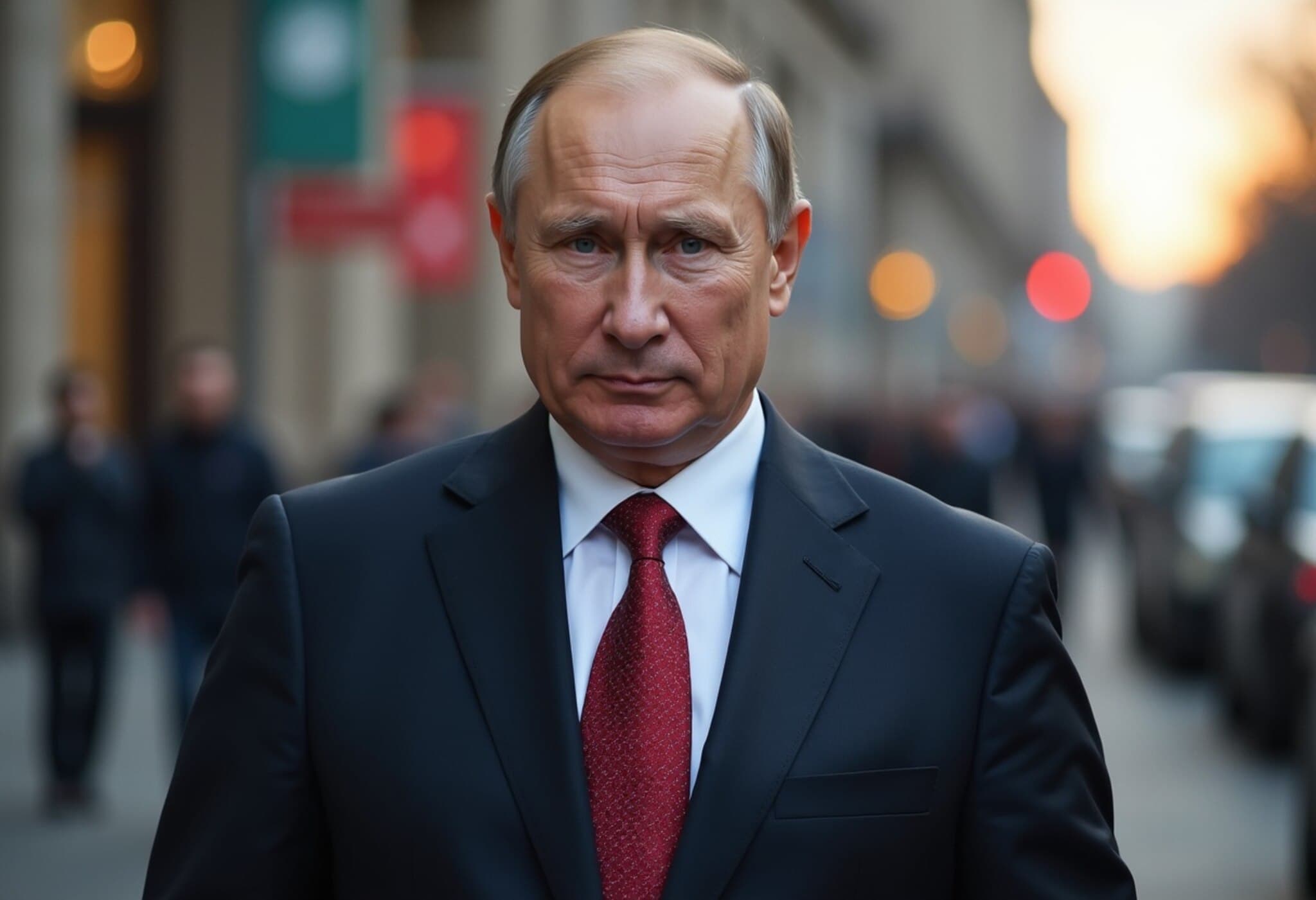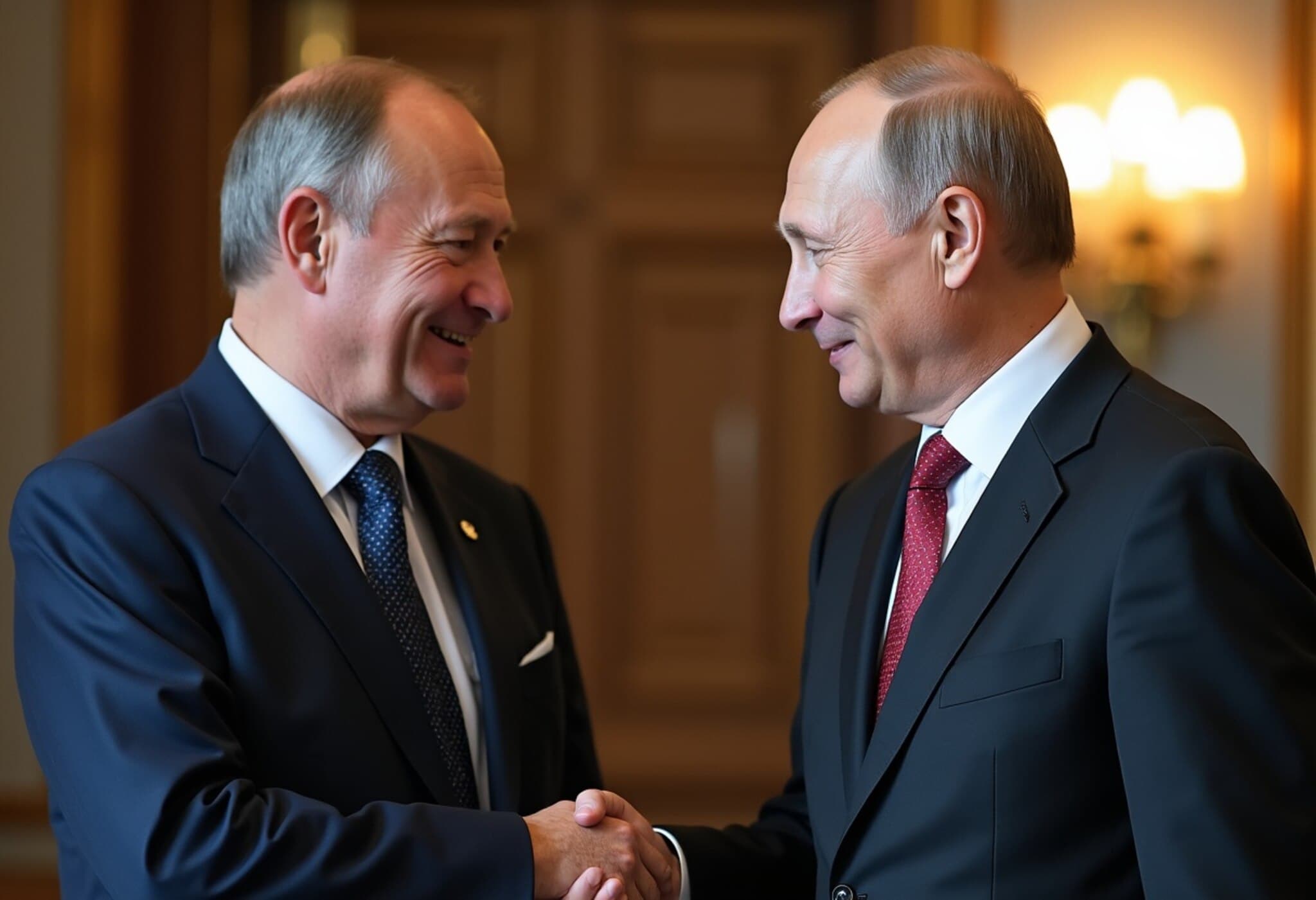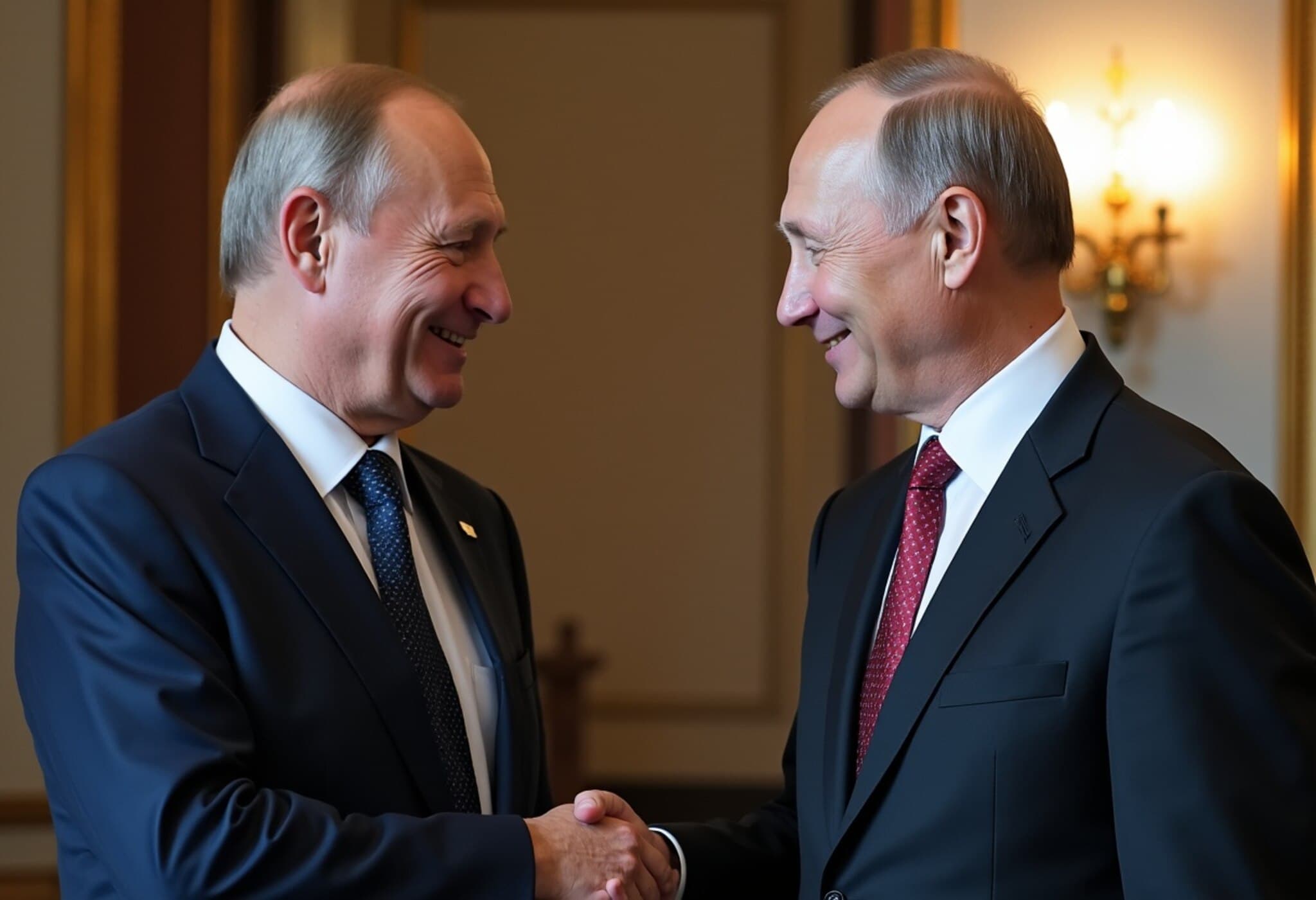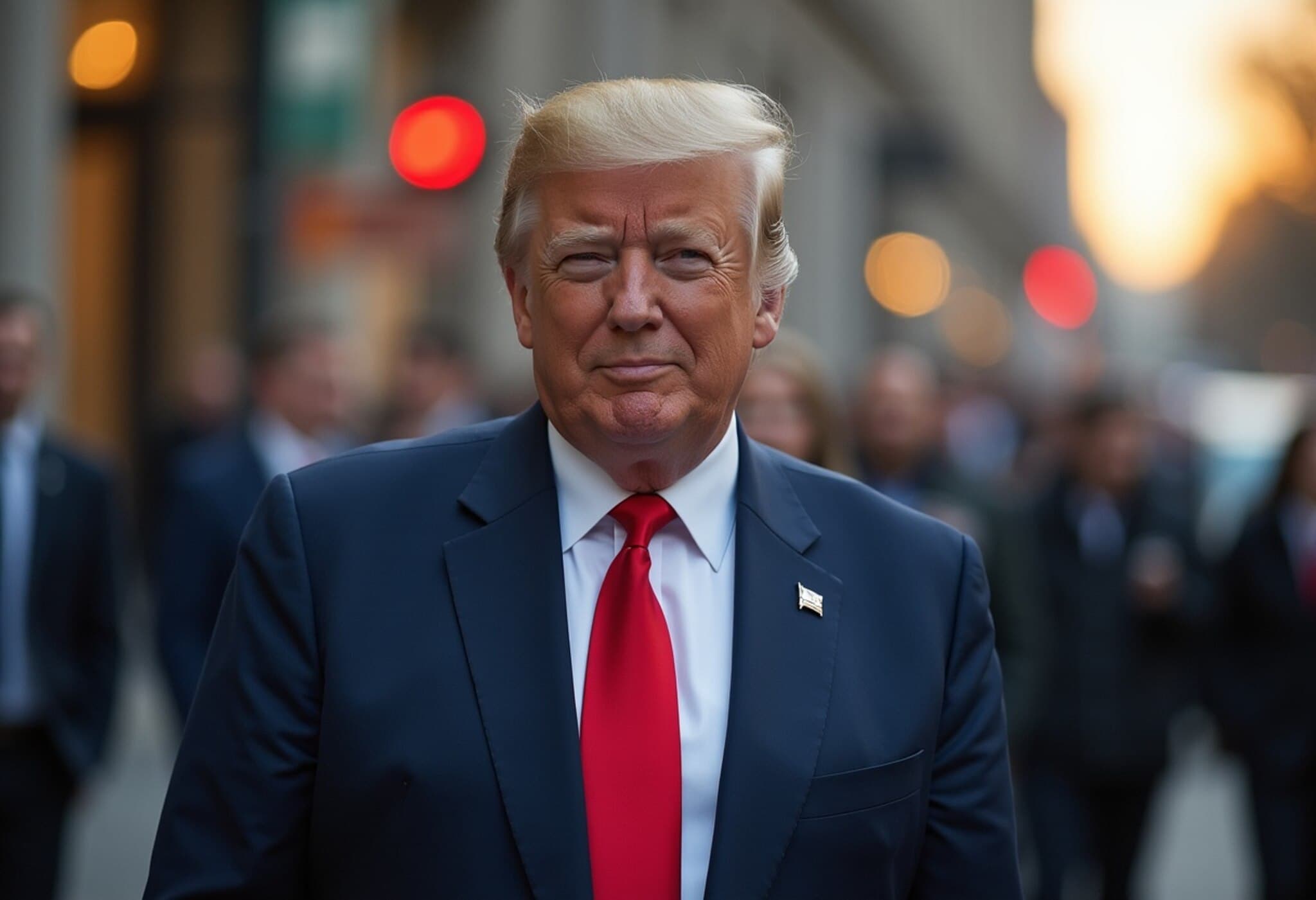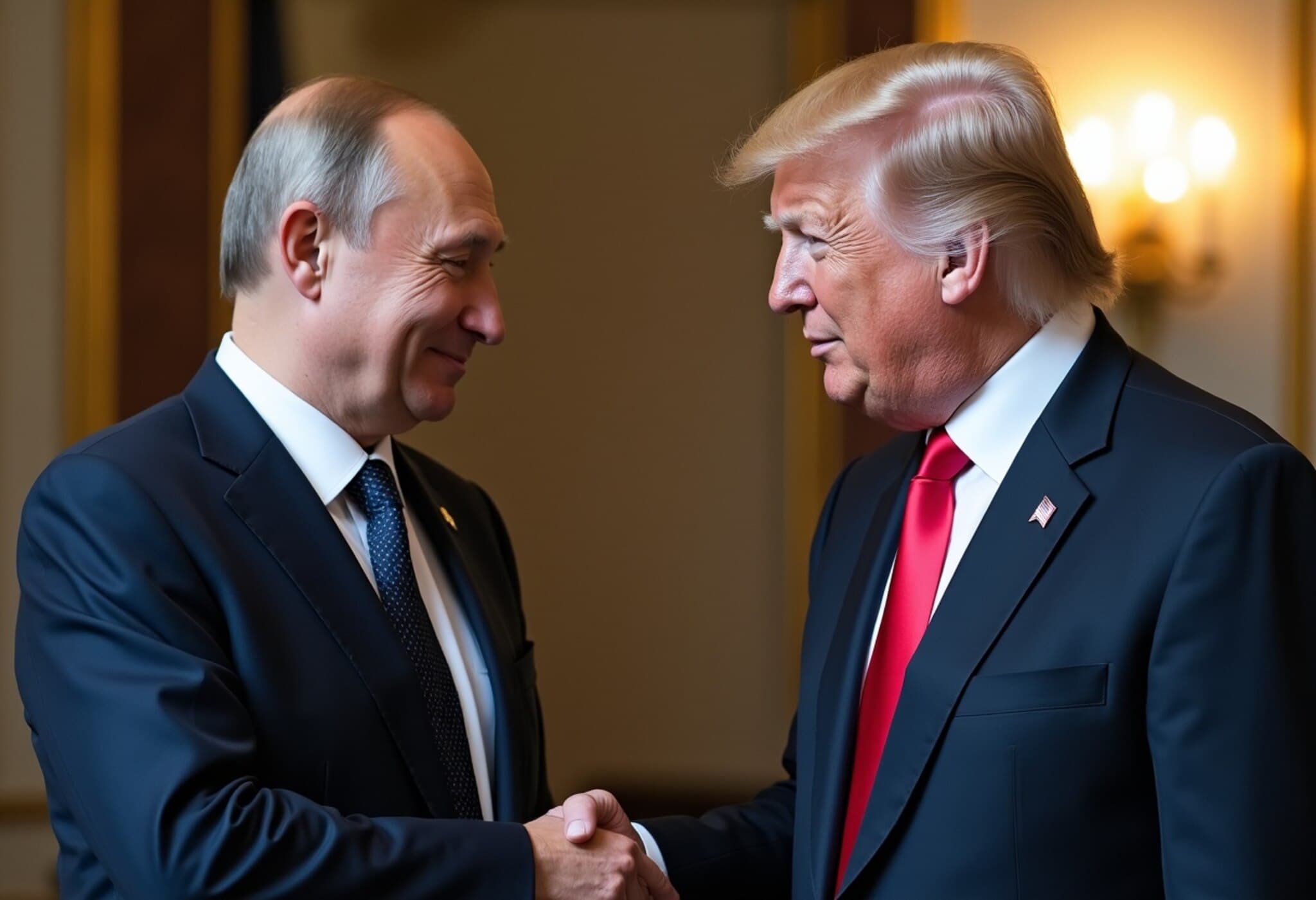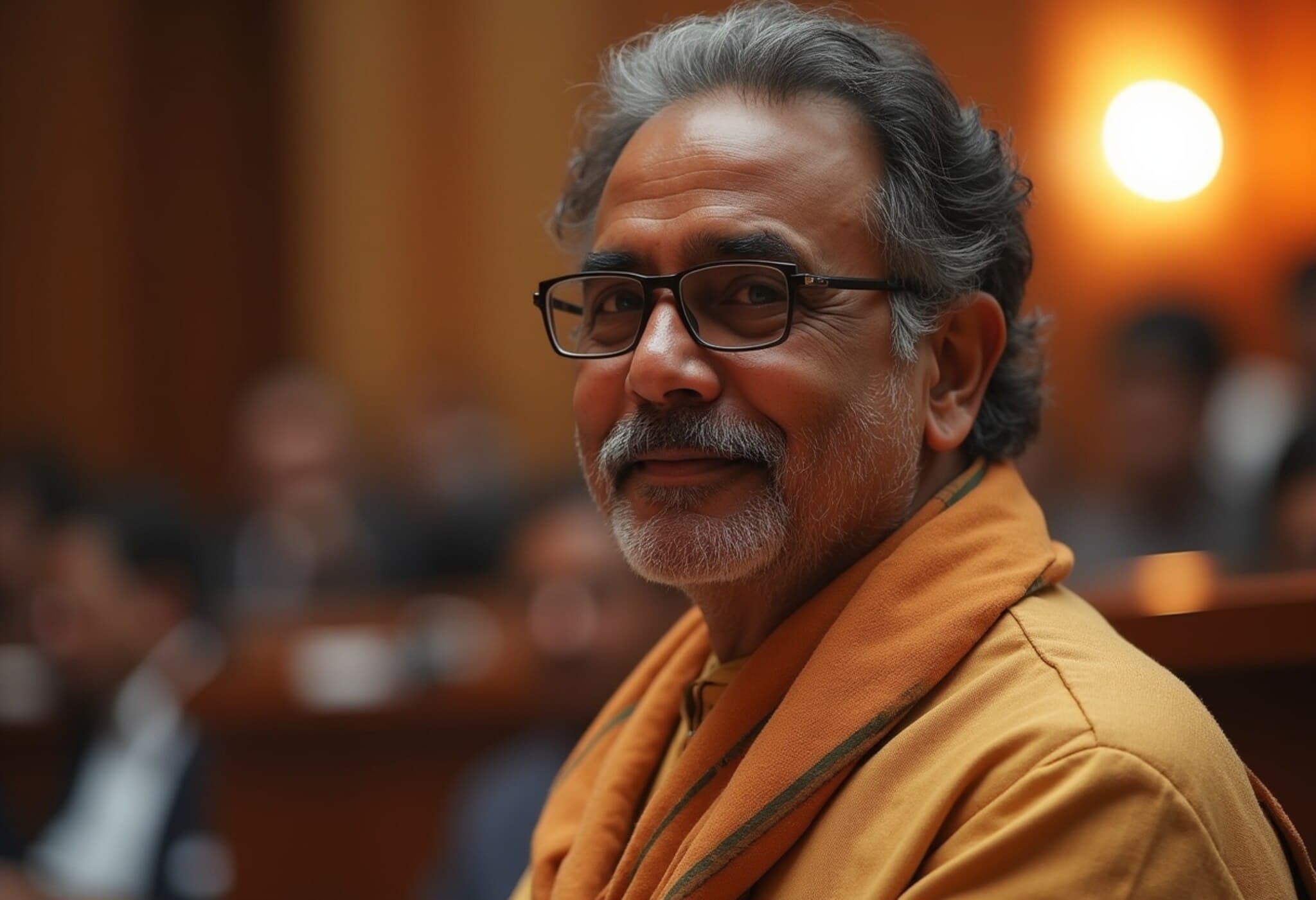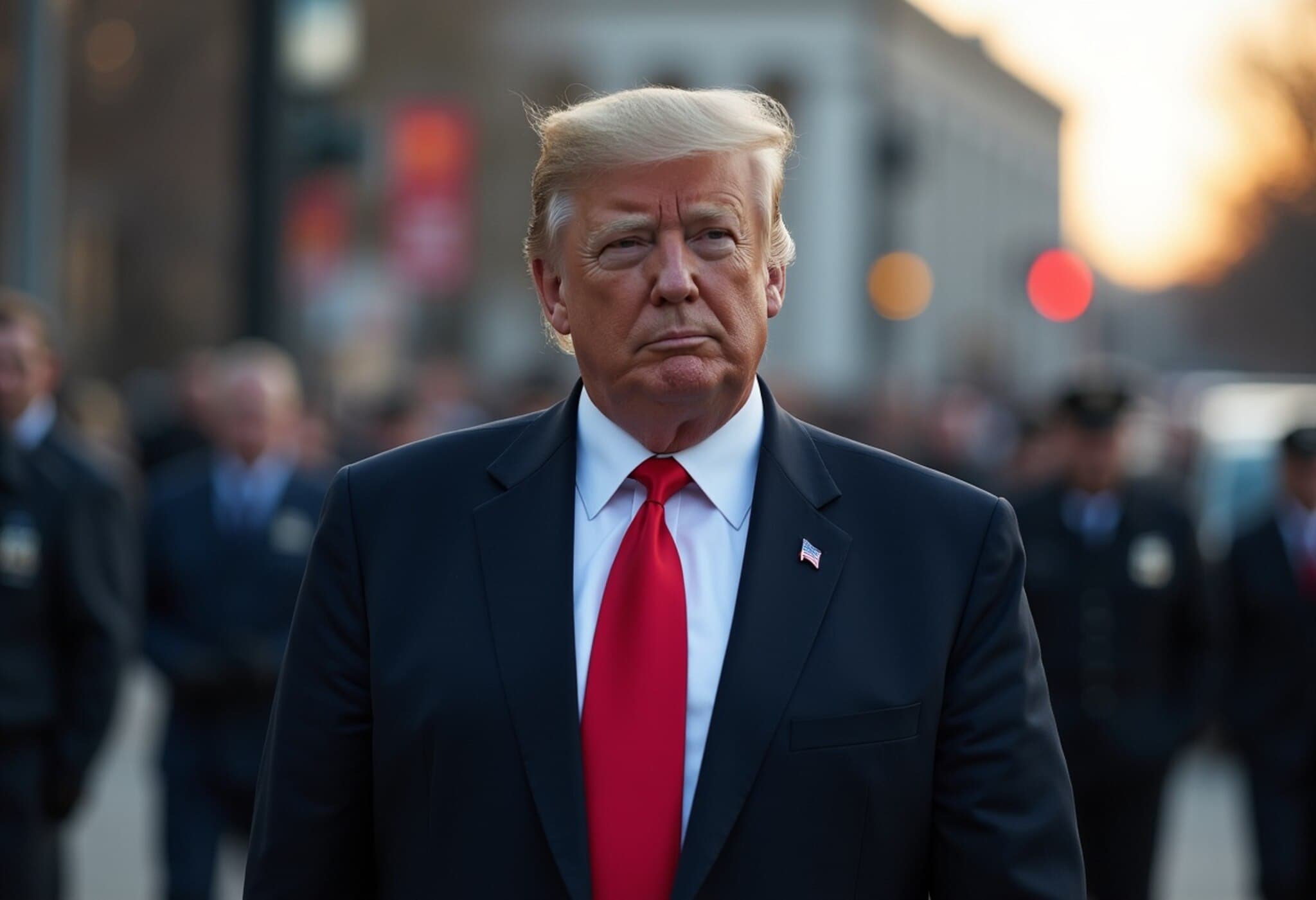Ukraine Excluded from High-Stakes Trump-Putin Talks
In a move that has stirred concern across diplomatic circles, Ukraine finds itself sidelined from the imminent high-profile talks between U.S. President Donald Trump and Russian President Vladimir Putin scheduled for Friday in Alaska. The meeting is positioned as an attempt to negotiate the end of the prolonged and devastating war in Ukraine. Yet, Kyiv warns the global community not to place blind faith in Moscow’s intentions.
Zelenskyy Signals Alarm Over Russia’s Military Plans
Ukrainian President Volodymyr Zelenskyy, speaking in his nightly address, revealed that intelligence updates and military briefings indicate Russia is preparing for increased military offensives rather than pursuing peace. "There is not a single sign that the Russians have been told to prepare for a post-war situation – not yet," Zelenskyy emphasized. He added, "On the contrary, they are repositioning their forces in a manner consistent with launching new attacks. No one preparing for peace acts this way."
He cautioned that Putin’s strategy appears to center on using the upcoming meeting with the U.S. as a personal diplomatic triumph, without changing Russia’s aggressive stance on Ukraine's sovereignty and territorial integrity. Zelenskyy’s stark warning raises critical questions about the validity and sincerity of the peace overture purported by Moscow.
The Diplomatic Dilemma: Ukraine’s Exclusion and Its Implications
The conversation between Trump and Putin excludes the very country at the heart of the conflict — underscoring a perilous diplomatic precedent. Neither Zelenskyy nor European leaders have been officially invited to participate, sparking unease among Kyiv and its supporters in Europe, who argue that any peace negotiations without Ukraine’s voice are not only unjust but strategically flawed.
This exclusion feeds fears that Moscow could leverage these talks to pressure Ukraine into making unacceptable concessions, particularly relinquishing control over territories currently occupied by Russian forces. European leadership has strongly urged the inclusion of Ukraine in any dialogue, highlighting the importance of a balanced and comprehensive approach.
Trump’s Position: "Feel-Out" Talks and Possible Territorial Swaps
At a recent White House briefing, President Trump suggested that the discussions might involve "some swapping" of Ukrainian territories between Kyiv and Moscow. Yet he downplayed expectations, framing the meeting as a preliminary "feel-out" to gauge Russia’s intentions. “If it’s a fair deal, I’ll reveal it to European Union leaders, NATO, and President Zelenskyy,” Trump said, signaling a cautious approach.
This position has sparked debate among analysts about what constitutes a "fair deal" and the potential repercussions of territorial adjustments. The stakes are particularly high given the geopolitical sensitivities surrounding eastern Ukraine and Crimea.
Expert Perspectives: The Complexity Behind the Talks
Experts caution that while the Trump-Putin dialogue opens a potential channel for compromise, it is unlikely to resolve the multifaceted, protracted conflict in a single sitting. Andrius Tursa, Central and Eastern Europe advisor at risk consultancy Teneo, articulated this view: "These talks should be interpreted as an initial probe by the Trump administration into possible compromises on select issues rather than a breakthrough agreement."
Tursa further elaborated on Moscow’s potential strategy to exploit war fatigue and propose partial de-escalation measures, which could offer symbolic wins for diplomacy without securing concrete peace. Conversely, failure by Ukraine to acquiesce could frame Kyiv as the main obstacle, with Russia banking on U.S. influence to pressure Zelenskyy — a risk inherent in any discussion conducted absent Ukraine’s direct involvement.
Looking Ahead: The Urgency of Including Ukraine’s Voice
The Trump-Putin talk spotlight raises broader questions about the principles guiding peace negotiations. Can lasting security be achieved through deals made without the participation of the nation most affected? Ukraine’s administration has categorically rejected any territorial concessions ahead of peace talks, defining clear "red lines" that underscore its resolve.
The exclusionary approach risks undermining Ukraine’s sovereignty and setting dangerous diplomatic precedents. As snowballing geopolitical dynamics unfold, the international community must grapple with ensuring that peace efforts do not marginalize critical stakeholders or overlook the human cost of conflict on the ground.
Summary Box: Key Questions for the Reader
- Why is Ukraine being excluded from peace talks that directly concern its territory and future?
- What are the long-term risks of negotiating peace without the consent of the affected nation?
- Can demilitarization and ceasefire commitments be credible without robust verification mechanisms?
- What role should the U.S. and European allies play in safeguarding Ukraine’s sovereignty during these negotiations?
Editor’s Note: The evolving dynamics of the Trump-Putin talks underscore the complexity of peacemaking in modern conflict zones. The sidelining of Ukraine not only challenges the principle of inclusive diplomacy but also highlights the fragile balance between geopolitical strategy and the right to self-determination. As global citizens and policymakers watch closely, ensuring that any agreement respects Ukraine’s sovereignty will be vital to achieving durable peace and regional stability.

